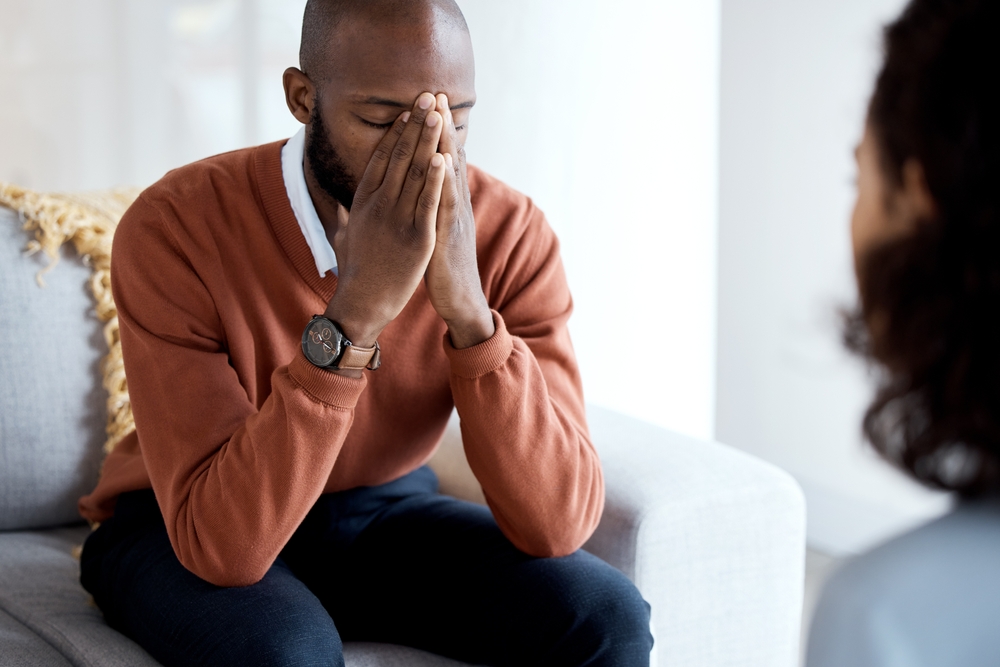Mental health is a crucial aspect of overall well-being, yet it often remains a taboo subject, especially among Black men. Cultural stigmas, societal expectations and systemic barriers contribute to the reluctance to seek help and discuss mental health issues openly. This article aims to shed light on five critical mental health issues that Black men should discuss to foster awareness, support and healing within the community.
Depression
Understanding depression
Depression is a common mental health condition that affects millions of people worldwide, but it is often underreported and untreated among Black men. Depression goes beyond feeling sad or having a bad day; it can manifest as a persistent feeling of hopelessness, loss of interest in activities and physical symptoms like fatigue and changes in sleep patterns.
The stigma and its impact
The stigma surrounding depression is particularly strong in the Black community, where mental health issues are sometimes perceived as a sign of weakness. This stigma can prevent Black men from acknowledging their struggles and seeking the necessary support. It’s essential to break down these barriers by encouraging open conversations about depression and normalizing the need for mental health care.
Anxiety
The prevalence of anxiety
Anxiety disorders are among the most common mental health conditions, characterized by excessive worry, fear and nervousness. For Black men, anxiety can be exacerbated by societal pressures, racial discrimination and economic challenges. The constant stress of navigating a world where they may face prejudice and injustice can take a significant toll on their mental health.
Addressing anxiety
Discussing anxiety openly can help Black men identify their symptoms and seek appropriate treatment. Therapy, mindfulness practices and support groups can be effective in managing anxiety. Additionally, creating safe spaces where Black men can share their experiences without judgment can foster a sense of community and solidarity.
Substance abuse
The link between mental health and substance abuse
Substance abuse is often a coping mechanism for underlying mental health issues such as depression and anxiety. Black men are at a higher risk of substance abuse due to factors like socioeconomic disparities, lack of access to mental health services and the stress of racial discrimination.
Breaking the cycle
Addressing substance abuse requires a comprehensive approach that includes mental health support, education and community resources. Encouraging Black men to seek help for substance abuse and underlying mental health issues can lead to healthier coping strategies and improved overall well-being.
Trauma
The impact of trauma
Trauma — whether from personal experiences or generational suffering — can have a profound impact on mental health. Black men may experience trauma from various sources, including violence, systemic racism and historical oppression. Unaddressed trauma can lead to conditions like post-traumatic stress disorder (PTSD), depression, and anxiety.
Healing from trauma
Healing from trauma involves acknowledging its existence and seeking professional help. Therapies such as cognitive-behavioral therapy (CBT) and eye movement desensitization and reprocessing (EMDR) can be effective. Additionally, community support and cultural practices can play a vital role in the healing process.
Suicide
The alarming statistics
Suicide rates among Black men have been increasing, highlighting the urgent need for mental health awareness and intervention. Factors contributing to this rise include untreated mental health conditions, stigma and a lack of mental health resources tailored to the unique needs of black men.
Prevention and support
Preventing suicide involves early intervention, open conversations about mental health and access to resources. It is crucial to provide Black men with the tools and support they need to address their mental health struggles. Community programs, mental health education and support networks can make a significant difference in reducing suicide rates.
Prioritizing mental health for Black men
Addressing mental health issues among Black men is not just a personal responsibility but a community imperative. By fostering open discussions about depression, anxiety, substance abuse, trauma and suicide, we can break down the barriers that prevent Black men from seeking help. The cultural stigma surrounding mental health in the Black community must be challenged, allowing individuals to feel safe and supported in their struggles.
Encouraging a culture of mental health awareness and support can lead to healthier, more resilient communities. It is crucial to create environments where Black men can openly discuss their mental health without fear of judgment or shame. This involves promoting mental health education, increasing access to culturally competent mental health services and building strong support networks.
Community programs, support groups and mental health education initiatives play a vital role in this process. By investing in these resources, we can provide Black men with the tools they need to manage their mental health effectively. It’s time to prioritize mental health and ensure that Black men have the resources and support they need to thrive. Mental health should be seen as a fundamental aspect of overall well-being, and everyone in the community has a role to play in supporting this journey. By working together, we can create a future where mental health is openly discussed, understood and valued among Black men.

















